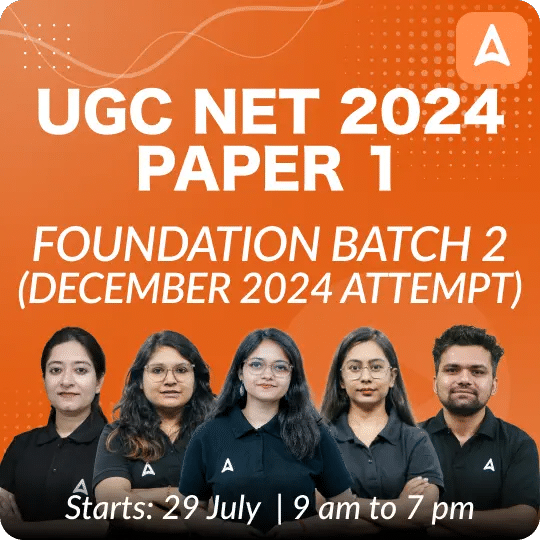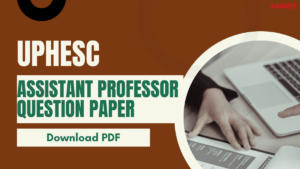Table of Contents
Embarking on the dual journey of being an Assistant Professor and pursuing a Ph.D. concurrently is a challenging yet rewarding endeavor that demands a delicate balance of responsibilities. This unique scenario often unfolds in academia, where individuals with a passion for both teaching and research strive to contribute to their field while advancing their own scholarly pursuits.
For people passionate about research and academia, pursuing PhD and working as an Assistant Professor simultaneously is an enticing proposition. But there is a lot of confusion regarding whether one can be an assistant professor & do a PhD simultaneously. Let’s settle all the doubts once and for all so that you can make informed decisions about your career path.
What is the post of Assistant Professor?
An Assistant Professor is an entry-level academic rank in the educational profession used in universities and colleges. It can be on an ad-hoc/contract basis or in route towards tenure, a permanent position. There are two types of Assistant Professor roles based on the experience level. A fresher Assistant Professor without any experience. A senior Assistant Professor with a minimum of 3 years of post-doc experience in the relevant area. Let’s quickly take a look at the eligibility criteria for an Assistant Professor.
Eligibility Criteria for an Assistant Professor
There are broadly two main criteria for becoming an Assistant Professor.
- The candidate must have a Master’s degree in the relevant subject with at least 55% marks.
- The candidate must have cleared National Eligibility Test (NET) or any State Level Eligibility Test (STET) in case of a particular state.
- In many colleges, an additional criterion of a PhD degree, as per the UGC regulations, 2009.
What is a PhD degree?
A PhD or Doctor of Philosophy is the highest level of academic qualification one can achieve in a particular subject. It is a doctoral research degree that takes anywhere from 3 to 6 years to complete. During this period, the doctoral candidate must research and write a thesis offering an original contribution to the subject. After completing the degree, you will be conferred with the title of Doctor. There are two types of Ph.D. One is called a Full-time PhD, and the other a Part-time PhD.
Full-time PhD– A full-time PhD is a research degree program pursued by students on a full-time basis, typically involving advanced study and the completion of a doctoral dissertation.
Part-time PhD– A part-time PhD is a research degree program pursued by students on a part-time basis, allowing them to balance their studies with other commitments such as work or family responsibilities.
Eligibility Criteria for Ph.D.
The minimum educational requirements to pursue a PhD in India are:
- A candidate must have a master’s degree from a recognized university or institution with a minimum of 55% marks or equivalent.
- In the case of a four-year degree, a minimum of 75% marks or equivalent grade.
- The master’s degree, or the four-year degree, should be in the area of research for the PhD one wishes to pursue.
- Apart from this, some universities also have specific subject-wise requirements.
Difference between Full-time PhD and Part-time PhD
A few crucial differences exist between a Full-time PhD and a Part-time PhD. Let’s take a look.
| Difference between Full-time PhD and Part-time PhD | |
| Full-time PhD | Part-time PhD |
| Obligation to report to your College daily | Not mandatory to report to your college. |
| Be present physically at the specified period to meet your guide for progress updates. | You can choose the time and even do so via other mediums mutually agreed upon by you & your guide. |
| Can apply for an Assistant professor post in the same University/college. | Can apply for an Assistant Professor post anywhere they like. |
| The minimum time to complete is 3 years. | The minimum time to complete is 4 years. |
| Eligible for JRF scholarships. | Not eligible for JRF scholarship. |
Apart from these, there are a few minor, inconsequential differences. Beyond these differences, you should note that it won’t impact or impede your career growth later whether you have done a Full-time PhD or a Part-time PhD.
Can you do a PhD & be an Assistant Professor simultaneously?
The first question that all of you must have been thinking is whether or not it is even allowed to be an Assistant Professor & do a PhD simultaneously. Well, the answer is Yes! You can definitely be an Assistant Professor & do a PhD simultaneously.
As long as you meet the individual minimum eligibility criteria for getting enrolled in a PhD and for the post of an Assistant Professor, you can do both simultaneously. However, you must know that there are two types of Ph.D. One is called a full-time PhD, and the other a Part-time PhD.
Both full-time and part-time PhD candidates become Assistant Professors. A part-time PhD candidate can apply for an Assistant professor role in different universities. However, Full-time PhD students can apply to their own university after seeking permission from their mentor/Guide.
Things to consider while pursuing PhD and working as an Assistant Professor simultaneously
Working as an Assistant Professor and pursuing PhD simultaneously can be tricky and unsuitable for many. Here are a few things you should consider while making the decision.
- You must produce a NOC from your work stating they have no objection to you pursuing a part-time PhD.
- Your role as Assistant Professor while pursuing a part-time PhD will be on an ad-hoc/contract basis.
- D. is not mandatory for candidates applying for an Assistant Professor role. However, in many colleges, such as IITs, a PhD degree is mandatory for applying for the post of Assistant professor.
- Juggling work life and research efforts while doing both can be really tricky. Thus, you should be prepared for a heavy workload.
- To manage your workload and effectively do your PhD and be an Assistant Professor, you can look for Collaborative Research Opportunities to progress in your PhD while actively participating in your teaching responsibilities.




 UPHESC Assistant Professor Question Pape...
UPHESC Assistant Professor Question Pape...
 Is the CSIR NET Exam Tough? Know the Dif...
Is the CSIR NET Exam Tough? Know the Dif...
 Tips & Strategies to Prepare for CSI...
Tips & Strategies to Prepare for CSI...














